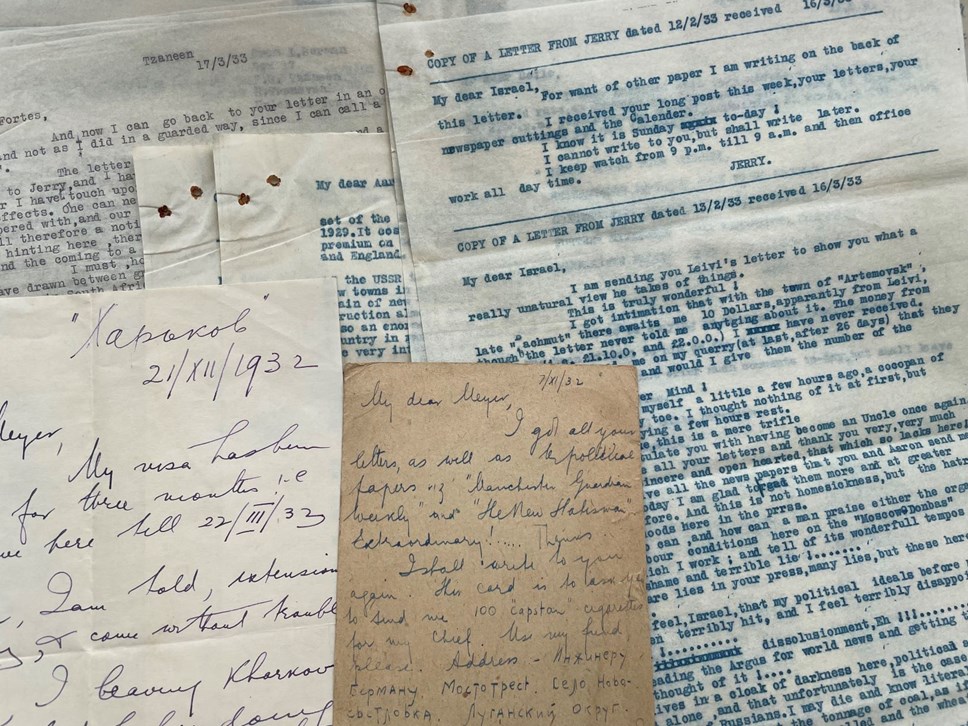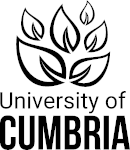
Chance discovery reveals shocking insight into a genocide killing millions
A unique collection of 69 letters shedding new light on the horrors of Ukraine’s ‘terror famine’ have gone on show in Kyiv thanks to a remarkable discovery by a University of Cumbria academic.
Correspondence to Alison Marshall’s grandparents has been hailed as a significant historic breakthrough in helping discover the truth behind the Stalin orchestrated Holodomor genocide, which caused around seven million deaths in the early 1930s.
Grain crops, and later even seeds, were confiscated to meet national targets, leading to a catastrophic artificial famine in rural communities.
Graphic reports from engineer Jerry Berman to his close friends Meyer and Sonia Fortes are featuring in a new National Holodomor Museum exhibition which opened this week and the contents are causing a stir.
Ms Marshall explained: “They give detailed accounts of when wheat was requestioned for export to generate hard currency, causing terrible conditions and widespread starvation.
“There is little documentation from this period and the fact they had come from a foreigner with an outside perspective is particularly valued.”
She found the missives while going through a large trunk of letters, which had belonged to her grandparents, who had become friends and climbing buddies with Jerry at university in their native South Africa and kept in close contact after moving to London.
When Jerry left for Ukraine, then part of the Soviet Union, to work as a civil engineer on a major bridge building project, he witnessed first-hand the desperate conditions. Workers were paid in bread tokens and forced to scavenge to feed famished families.
Curator and Head of Exhibitions at the Museum, Yana Hrynko, said the value of his letters was in discovering the truth.
She added: “Presented from the position of an involuntary witness, they testify the details of the Holodomor genocide. In addition, new findings or testimonies of foreign experts are increasingly destroying the image of Stalin as an effective manager, shedding light on the negative consequences of his methods and policies.
“They will become an important source of information and a valuable collection.”
Ms Marshall, who has donated the letters to the museum, said they had attracted significant interest in the Ukraine and that she was pleased by the amount of Ukrainian media attention.
Her grandfather had sent copies of the Manchester Guardian, the Economist and books to Berman and in return received long, detailed and often harrowing accounts about the conditions he was witnessing.
In one, from January 1933, he wrote: “What a pity that you see this world here through rosy glasses of your press, that you never know the truth.”
Along with University of Cumbria colleagues, Ms Marshall, who is Professor of Innovation and Entrepreneurship, intends to create educational resources explaining how physical and personal artefacts can support learning about major traumatic events.
There will be close collaboration with Holodomor museum, which details the horrifying deliberate act of genocide against the Ukrainian people, leading to mass death and destruction.
Notes to editors: Ms Alison Marshall will be back in the UK and available for interview on September 22. Please contact Karen Barden on 07793 083106, 015395 52366.
Pictures show Jerry Berman letters
Jerry Berman image
Ms Alison Marshall’s grandfather, Meyer Fortes
Ms Alison Marshall being interviewed at the exhibition opening at the National Holodomor Museum, Kyiv
